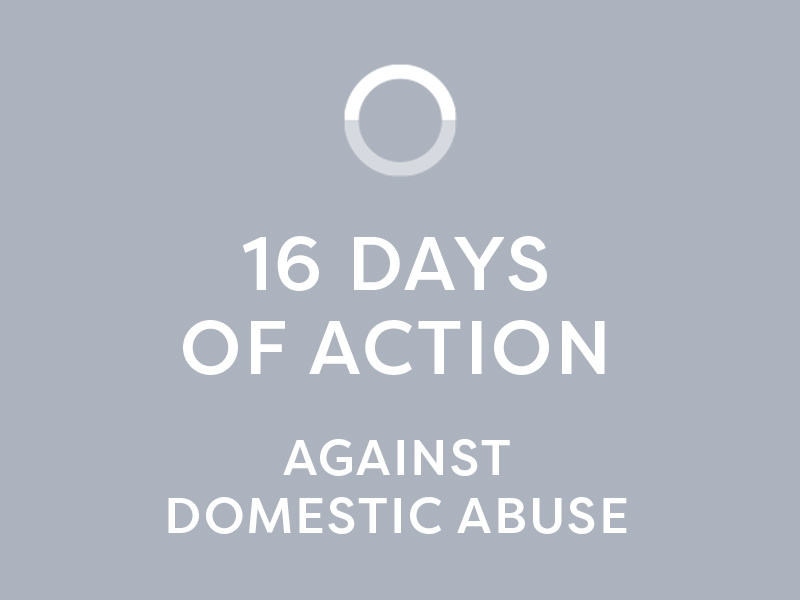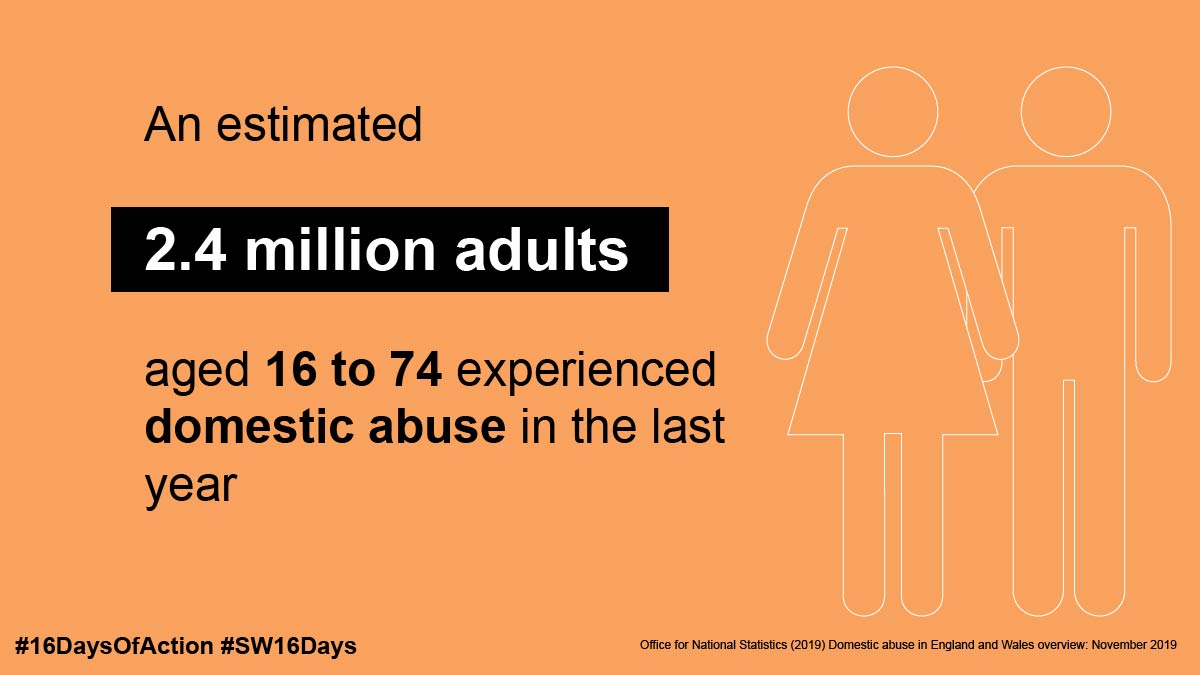16 days of action against domestic abuse 2020

Over the next 16 days, we’re supporting the national campaign – 16 days of action against domestic abuse (25 November – 10 December).
In today’s blog, our Safer Neighbourhood Manager Gareth tells us what domestic abuse is, the different forms of domestic abuse and ways to report.
Domestic abuse is an incident or pattern of incidents of controlling, coercive, threatening, degrading and violent behaviour, including sexual violence, in most cases by a partner or ex-partner, but also by a family member or carer. It is very common. In most cases it is experienced by women and is perpetrated by men.
Domestic abuse can include, but is not limited to, the following:
- Coercive control (a pattern of intimidation, degradation, isolation and control with the use or threat of physical or sexual violence)
- Psychological and/or emotional abuse
- Physical or sexual abuse
- Financial or economic abuse
- Harassment and stalking
- Online or digital abuse
(Women’s Aid definition)

Exposure to domestic abuse causes chronic stress, fear, and anxiety, which are toxic to the brain and impairs brain development – it can have significant detrimental impact on the lives of the victims. Consequently, consistent and early exposure to domestic abuse can lead to learning disabilities, behavioural issues, and physical and mental health problems in both adults and children.
Sadly, since the start of lockdown Onward has seen a rise in reported domestic abuse cases in 2020. Our Safer Neighbourhood team has been managing an increase of 32% compared to the same period (April – August) in 2019.
The neighbourhoods that have been most affected during this period have been Oldham North and South, Rivers, Hattersley, Manchester, County, Castlefields, Picton and Riverside.
At the beginning of lockdown the Safer Neighbourhood team networked with local authorities and 3rd sector agencies to ensure processes and pathways to support where in place. All multi-agency meetings (MARACs) weere moved online and we ordered additional security packs that could be quickly deployed to anyone at risk.
If you’re experiencing domestic abuse at your home report the problem as soon as possible.
- If you, or anyone you know is in immediate danger call 999
- It it’s a non-emergency you can contact the police on 101
- You can get further access and support by contacting us on 0300 555 0600.
Useful resources
- UK provides excellent advice on recognising the different types of domestic abuse and how to seek help (even if you suspect you are the abuser)
- Women’s Aid offering support and help to women and children who have been affected by domestic abuse.
- The NHS website offers advice on helping a friend if they’re being abused.
Over the next 16 days we will be sharing several stories and advice about the support available in your region. You can keep updated over the next 16 days by checking out our Twitter and giving us a follow on there.

